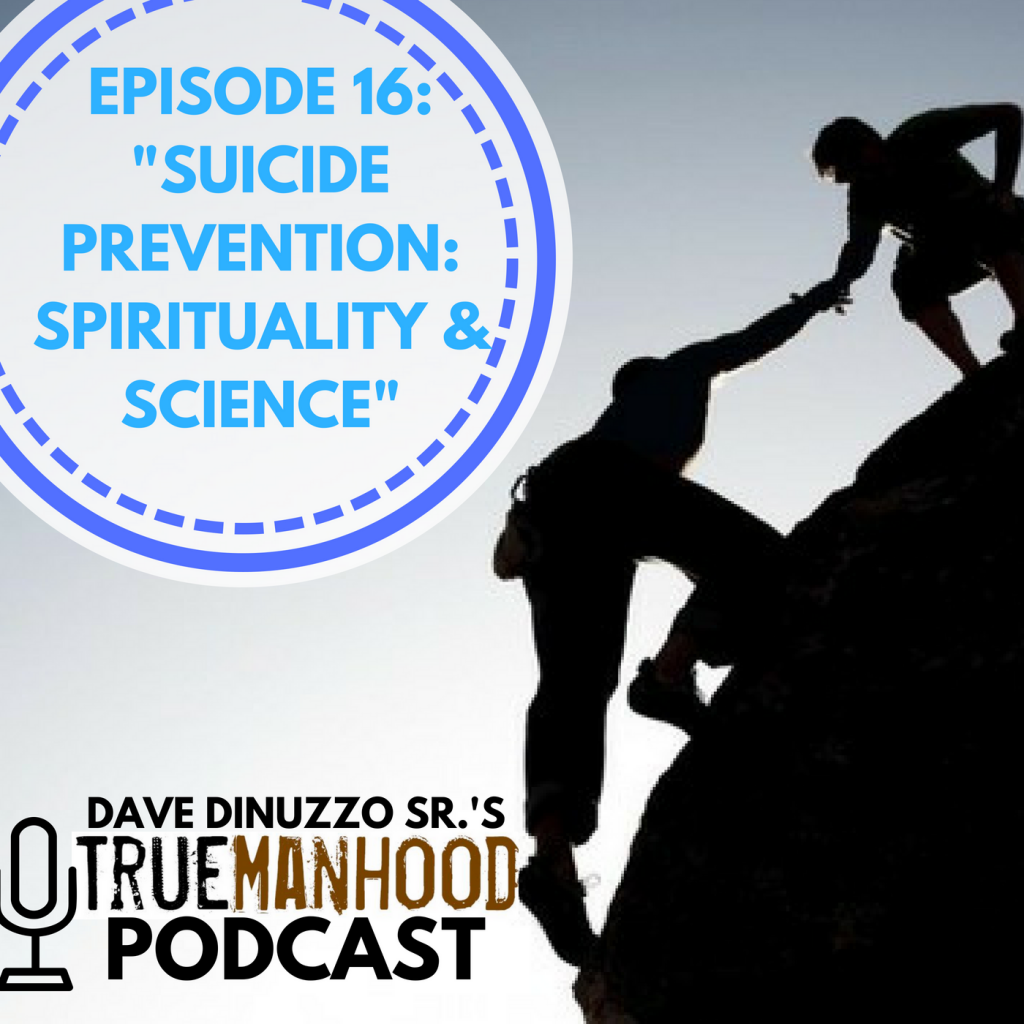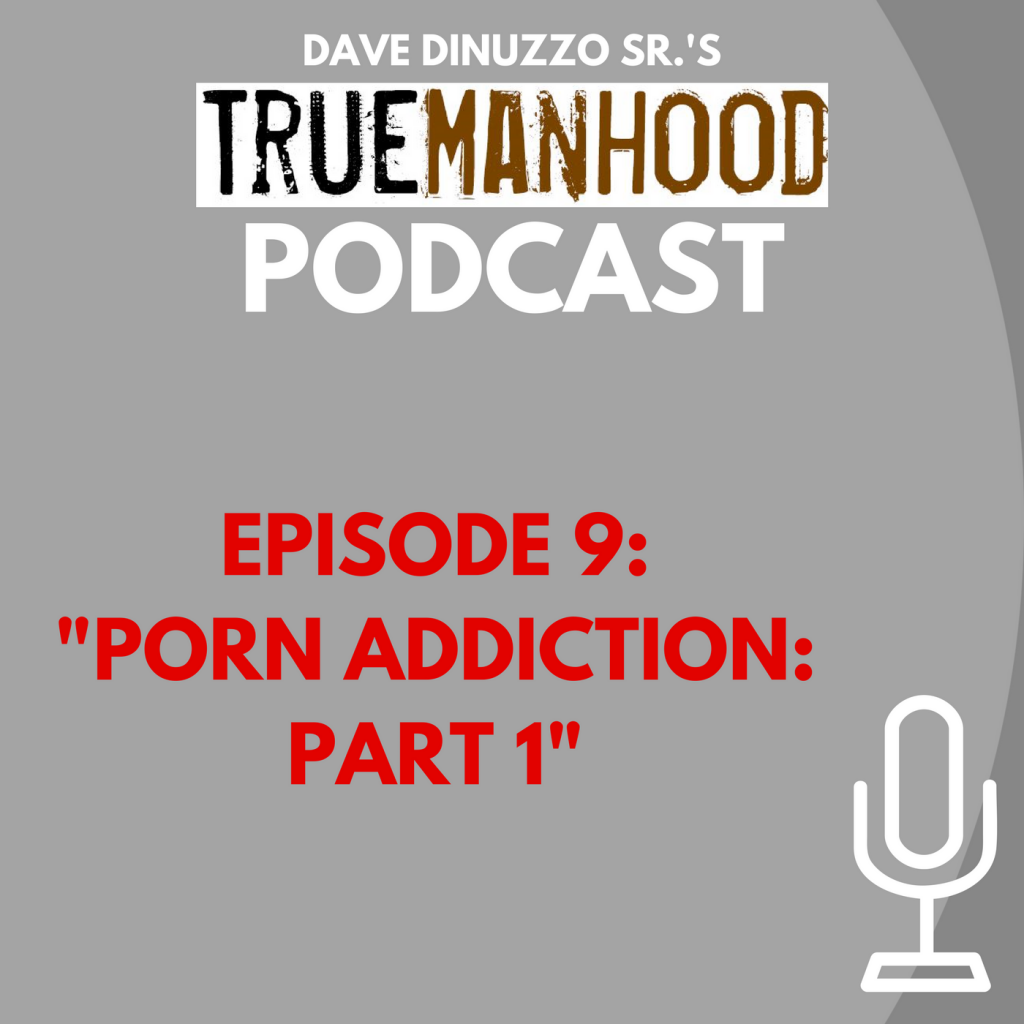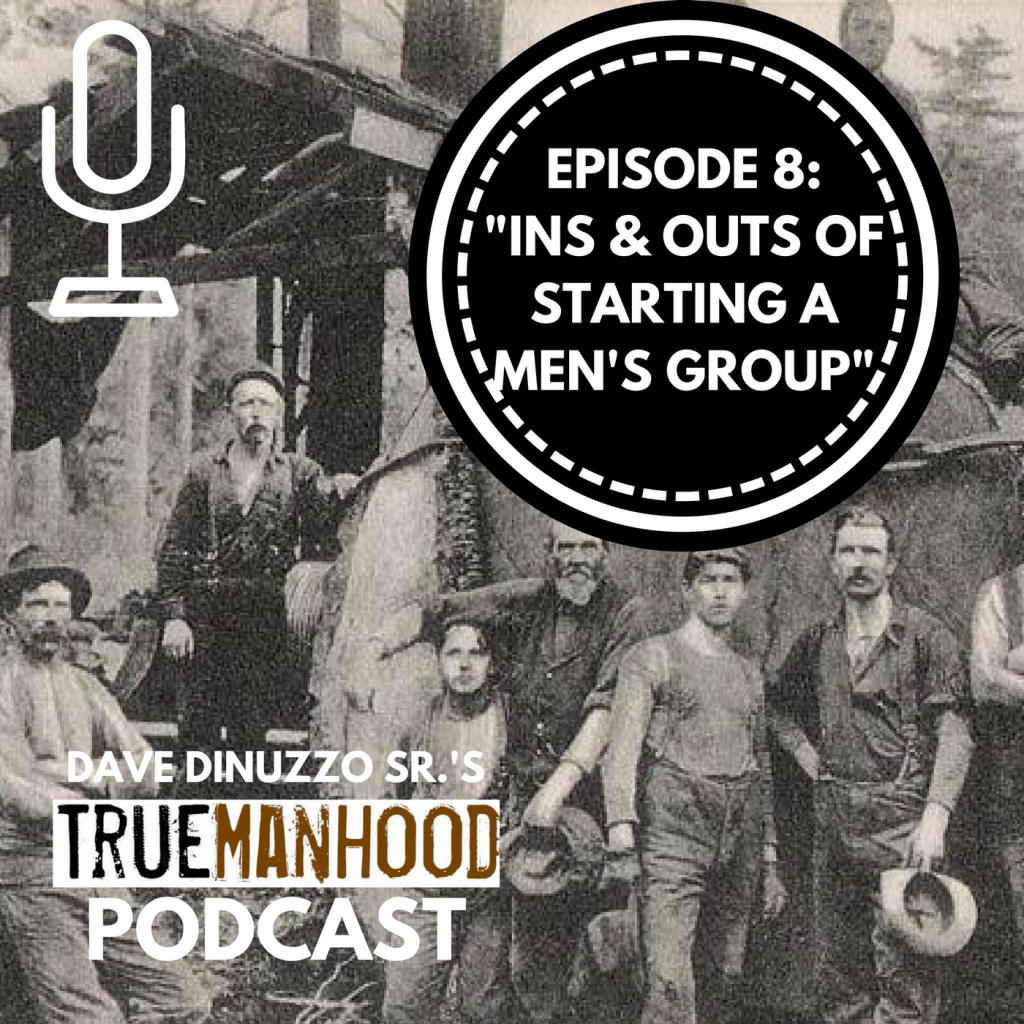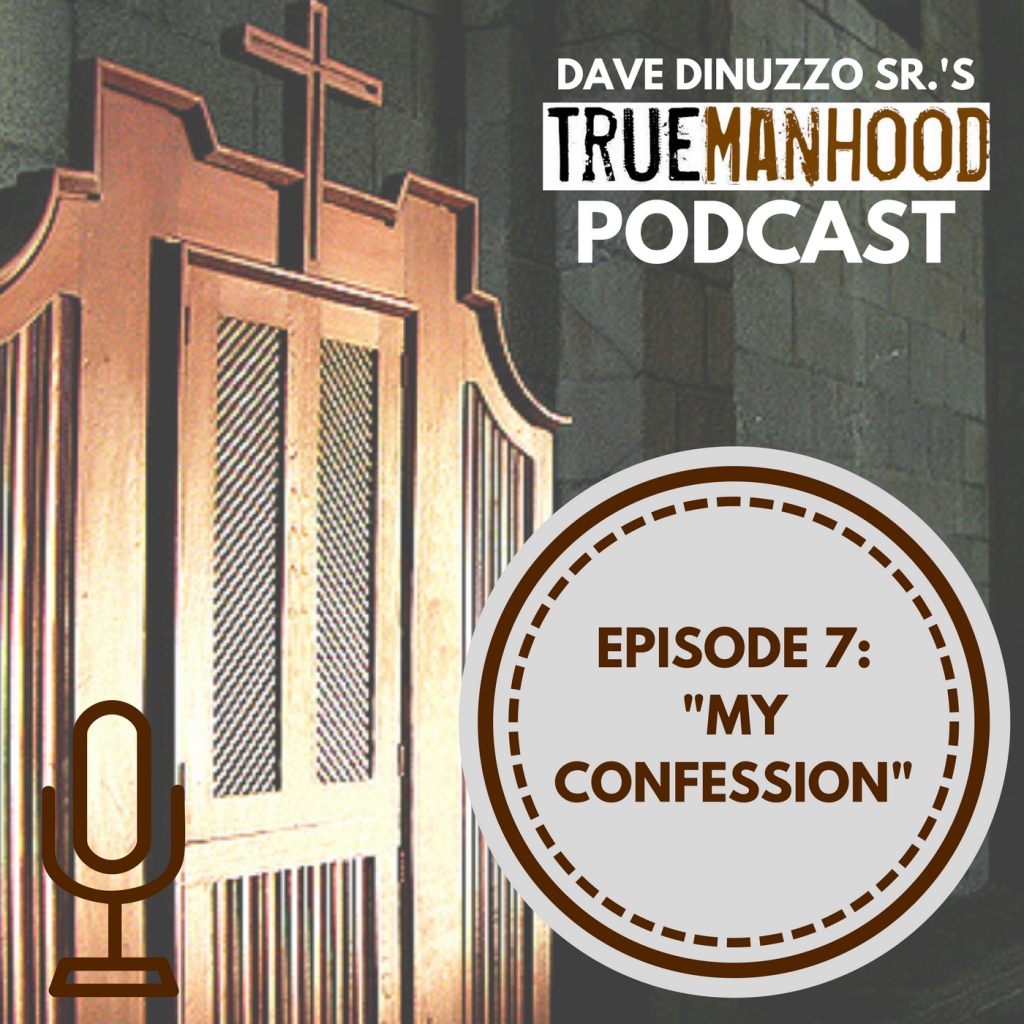Ep16 – Suicide Prevention: Spirituality & Science
June 15, 2018 by admin
Filed under Blog, Catherine's Column, cultural manliness, Evangelization, Faith, For Women, Parenting, Podcast

Dave is joined by his wife Catherine, a Licensed Professional Counselor to discuss suicide prevention. This episode is intended to help listeners gain information about helping their loved ones who might be suicidal, or if they themselves are struggling. Know that you are loved and are good! (This was recorded in 2014 in the wake of the suicide of Robin Williams, and remastered and edited for the podcast in light of recent public celebrity suicides.)
Podcast: Play in new window | Download
Subscribe: RSS
Guest Post – It Only Takes One
June 15, 2018 by admin
Filed under Blog, Catherine's Column, Evangelization, For Women, Parenting
In connection with an upcoming podcast, originally recorded with my wife Catherine for local Catholic radio in 2014, my wife mentioned this article. The article is intended to help folks navigate the tough waters of suicide prevention in their loved ones.
By Catherine DiNuzzo of DiNuzzo Counseling
Imagine…it’s Christmas Day and your family is gathered around the dinner table. Everyone is talking and laughing. Everyone, that is, except for your sister. It has been a few months since you have seen her because she now goes to college out of state. You notice that she seems to be in her own world, disengaged from the family and disinterested in the discussion. She has cut her food into very small pieces but isn’t eating any of it, only pushing it around her plate. You also notice that she has lost a lot a weight since the last time you saw her.
Now imagine that you are out with your roommate. You realize that you haven’t seen her eat very much lately, but now that you are both out at dinner, she seems to be eating more than she normally would. Dinner is over, and as you wait for the bill, she seems anxious. She excuses herself to the bathroom, but is gone for a really long time. As you are about to get up to see if she is ok, she comes out, but refuses to look you in the eyes.
Maybe the scenario you’re imagining is your mother. She’s been distancing herself from the family. She’s alone a lot. You can’t remember the last time you heard her laugh. It feels like nothing makes her happy anymore, even the things that used to. She goes about her day doing all the things that need to be done, but she’s lost the joy that used to be so commonplace.
In all of these situations, and many others that might come to mind, there’s probably a feeling in your gut that something’s wrong. No matter how hard you try to wish it away, that interior nudge telling you that you need to say something just won’t go away. That ‘gut feeling’, or nudge, is there for a reason. So what do you do?
Unfortunately, we often do nothing. We are afraid of offending the person, afraid that it is not our place to say something. We are afraid we will say all the wrong things. So, we wait. We wait in hopeful anticipation, praying that someone else will say something. Or, we hope that maybe our loved-one will come to us and ask for help. As we fight these thoughts, the one we love and know is in need, is just waiting for one person who is not afraid to ask them…“Are you ok?”
In my counseling practice, I’m commonly approached with questions and phrases like… “I have a friend who needs counseling, but I don’t know how to approach them. Can you give me some advice on what to say?” It’s a very complicated question, with a multitude of answers. Every situation is very different. Keeping that in mind, I’d like to offer you six helpful hints that may help. (These can be adapted for different situations.) I must stress that the most dangerous thing is to say nothing at all. We cannot let our fear get in the way of reaching out to help someone in need.
6 HELPFUL HINTS
- PRAY ABOUT IT: An important first step, because it reminds us that as we face our fears, we are not alone. The greatest fear that I hear is “I’m afraid that I’ll say all the wrong things and possibly somehow make things worse.” Whenever I speak to a client, I always start by saying a prayer and ask for the Holy Spirit to speak through me. This way, my words will be His words, and therefore, be the words that I need to say. Try it, trusting in the Holy Spirit to guide you.
- KNOW YOUR MOTIVATION: When we reach out to a family member or friend in need, we are doing it out a love for them. This is your motivation; you are doing it because you want what is best for them, and you don’t want to see them hurting. As you talk to them about your concerns, say that you come to them with this concern out of love.
- BE PREPARED: Before you talk to your loved-one, prepare yourself. Think about what it is that you want to say and what is it that you want them to understand. Sometimes we have so many concerns and emotions about a situation that the purpose of our conversation can get lost. I recommend picking one or two things that are your biggest concerns. Focus your effort on those areas. These should be things that are broad and should be able to include many of your smaller concerns inside the larger concern.
- ANTICIPATE THEIR REACTION: After you voice your concern, there are a number of responses that may be involved. These responses could include, but are not limited to: denial, avoidance, fear, anger, and/or defensiveness. Some may try to change the subject, or may try to lighten the mood by using humor. The loved-one may believe that they have been hiding their feelings or actions so well that there may be an element of shock that their problem has been noticed. It is important to let them have these emotions, whatever they might be, and to not get into a debate with them. Say something like. “I understand that you feel this way. I care about you too much not to say something.” I know that it looks like you are hurting, and I want you to know that I am here to help, and that you are not alone.”
- DON’T GIVE UP: It may take time for your loved-one to admit that they need help. Don’t give up on them. Sometimes the denial and fear is very strong, and it takes time for them to become open to help. However, don’t be discouraged. Know that even if they seem mad or are in great denial, at least now they know that someone cares and that they are not alone. They also have someone who they can talk to about their struggles. Leave the door open for them to come talk to you again, and don’t be afraid to bring it up again if you don’t see the behavior getting better or if your loved-one isn’t taking steps to change.
- CONSULT WITH PROFESSIONALS: Sometimes situations are more than you can handle. If you have someone in your life who is suicidal (Click Here for Suicidal Warning Signs) or is in a life-threatening situation, it is important to contact a professional. If there is ever any doubt for someone’s safety, immediately call 911 or your local emergency number for help.
It only takes one. One person to step outside of their comfort zone. One moment, one question, one hand reached out to help. If you know a friend who needs help, don’t be afraid to be the one person who chooses to make a difference.
Imagine… it’s a Friday night at your local (and very busy) grocery store. There are cars going all different directions and the parking lot is crowded. The drivers seem lost in their own thoughts. As you go inside and reach for a cart, something catches your eye. It’s a little girl with her mother, standing right outside of the store on the sidewalk. With all the hustle and bustle, it’s obvious that no one else seems to have noticed this mother and daughter pair, but for some reason you stop to watch. As you watch them prepare to head to their car, you see the mother stop and look down into her purse to get her keys, and then you realize that the little girl has not stopped walking, but that she is heading straight for the busy parking lot. All alone, she walks ahead, not noticing the car coming right at her. What do you do? Without thinking, you run after the little girl and stop the traffic. You get the mom’s attention. You do whatever you need to do to save that little girl. No questions asked. It doesn’t matter what else is going on in that moment… you do whatever it takes to save her. Fast forward… now that little girl has an eating disorder, poor body image, no self- worth, a cutting problem, alcoholism and/or drug abuse, suicidal tendencies, or some other problem. Are you going to just sit there and watch, letting the traffic run into her or are you going to step in and do something to help save her?
If you or someone you know needs help, please contact me, or a local therapist in your area. My contact information is available on my website, www.DiNuzzoCounseling.com.
P.S. You are enough.
The TrueManhood Podcast Episode 9 – Porn Addiction: Part 1
April 16, 2018 by admin
Filed under Blog, Evangelization, manliness, Parenting, Podcast, pornography, Virtue
 In this episode on pornography, part 1, Dave DiNuzzo opens up about his porn addiction, and a bit of how he overcame it, what porn is, why it’s bad, and how to help ourselves and our kids. Watch for part 2 coming soon, and watch for the upcoming episode on “The 5 Step Plan.” TrueMan up!
In this episode on pornography, part 1, Dave DiNuzzo opens up about his porn addiction, and a bit of how he overcame it, what porn is, why it’s bad, and how to help ourselves and our kids. Watch for part 2 coming soon, and watch for the upcoming episode on “The 5 Step Plan.” TrueMan up!
Podcast: Play in new window | Download
Subscribe: RSS
The TrueManhood Podcast Episode 8 – The Ins and Outs of Starting a Men’s Group
 Dave gives some practical suggestions to men who are considering starting a men’s group. Step 1 – decide what type of group you want to have. Step 2 – find 4 other men to help you. Step 3 – talk to your priest. Step 4 – Invite men, market, advertise, promote. Step 5 – kick off event. Good luck! Reach out to Dave for help – Dave@TrueManhood.com.
Dave gives some practical suggestions to men who are considering starting a men’s group. Step 1 – decide what type of group you want to have. Step 2 – find 4 other men to help you. Step 3 – talk to your priest. Step 4 – Invite men, market, advertise, promote. Step 5 – kick off event. Good luck! Reach out to Dave for help – Dave@TrueManhood.com.
The TrueManhood Podcast Episode 7 – My Confession
April 2, 2018 by admin
Filed under Blog, Evangelization, Faith, manliness, Podcast, Scriptural Examples, Virtue

In the 7th episode of The TrueManhood Podcast, Dave makes his confession. Whether you’ve confessed recently or not, get there and do it! If you’re not Catholic and want to know more, contact Dave@TrueManhood.com.
Podcast: Play in new window | Download
Subscribe: RSS
Living Balance? No thanks, I’ll stick with Order.
A lie flying around in our culture – one that is very prevalent, and common-language for many – is the encouragement to “Live a balanced life.” (or other variations of it.) It’s sneaky in the way that it is extremely mainstream while still flying under the radar. It’s subtle, yet dangerous. I’ll explain.
Living balance is the commonly held idea that — if a person does things in a balanced way, or at least in a way that doesn’t emphasize something too much or too little, that he’ll be living rightly. And thus, by living rightly, he will become happy. If everything in a person’s life is “just right”, and nothing tips the scales one way or the other, the balance they experience will make all things right. — There are many problems with this idea. First, living balance isn’t rooted in anything tangible, ie: what does ‘balance’ even mean? Doing merely what I want to do (balance), even if in a moderate fashion, doesn’t mean that I’m doing what I ought to do (order.) What we ought to be doing, regardless of who we are or what our state in life may be, is to live virtue. Living virtue allows us “not only to do good acts, but to give the best of our self.” (Catechism of the Catholic Church #1803.) Giving the best of myself is what I ought to do.

Aristotle and St. Thomas Aquinas teach that we should shoot for the mean!
The “balance lie” would state that as long as the individual isn’t negating some aspect of his life, or at least not too much, he can do each activity in a balanced fashion. The truth about order is that, I’m called to living a life that is worth the very best. Choosing activities merely because I want to do them, isn’t necessarily pointing me towards that very best. Depending on what activities I’m doing, they may or may not be evil in-and-of-themselves, yet they may not be quite what I ought to be doing. Here, the question must go deeper (again, more than simply what I want to do) and ask the question, do I possess the virtue of temperance? Am I exercising justice? What about fortitude? Am I living prudently? Are my actions pointing towards charity? In attempting, however, to live virtue and do the greatest good, I’m challenged to order those things, along with others in my life, so that ultimately, I’m able to possess the virtues and live as closely to the example set by Christ as possible.
Here’s a video where I explain this idea a bit further. Live order.
TrueMan up!
Men, I Exhort You
October 7, 2015 by admin
Filed under Blog, cultural manliness, Evangelization, Faith, Fatherhood, manliness, Parenting, Virtue
 From time to time, bishops write what are called ‘apostolic exhortations’… a letter or article or writing that calls the people to a higher level of knowledge on a topic… that encourages the reader to live a particular way, or to consider a worldview that may be different from what they currently believe and are living. Many apostolic exhortations have to do with modern crisis and societal concerns that the bishop desires to spend time and effort working to correct. The latest of these exhortations comes from a great man, a great shepherd of the people, and a wonderful bishop, Bishop Thomas Olmsted of the Diocese of Phoenix in Arizona. Watch the trailer below to be inspired to read the exhortation, which you can find by clicking on the link below.
From time to time, bishops write what are called ‘apostolic exhortations’… a letter or article or writing that calls the people to a higher level of knowledge on a topic… that encourages the reader to live a particular way, or to consider a worldview that may be different from what they currently believe and are living. Many apostolic exhortations have to do with modern crisis and societal concerns that the bishop desires to spend time and effort working to correct. The latest of these exhortations comes from a great man, a great shepherd of the people, and a wonderful bishop, Bishop Thomas Olmsted of the Diocese of Phoenix in Arizona. Watch the trailer below to be inspired to read the exhortation, which you can find by clicking on the link below.
Click HERE to get to the exhortation. It is lengthy, and the website has much more on it than just the exhortation, so be prepared to save the site and come back to it as you need to.
I applaud the efforts of Bishop Olmsted and all the men and women who support him in this project. He couldn’t be more right in what he says and writes… we are absolutely in a crisis and need the fullness of the teaching of masculinity to come out and to be spread. That IS the work of TrueManhood Men’s Ministry and we stand in solidarity with Bishop Olmsted.
TrueMan up!






